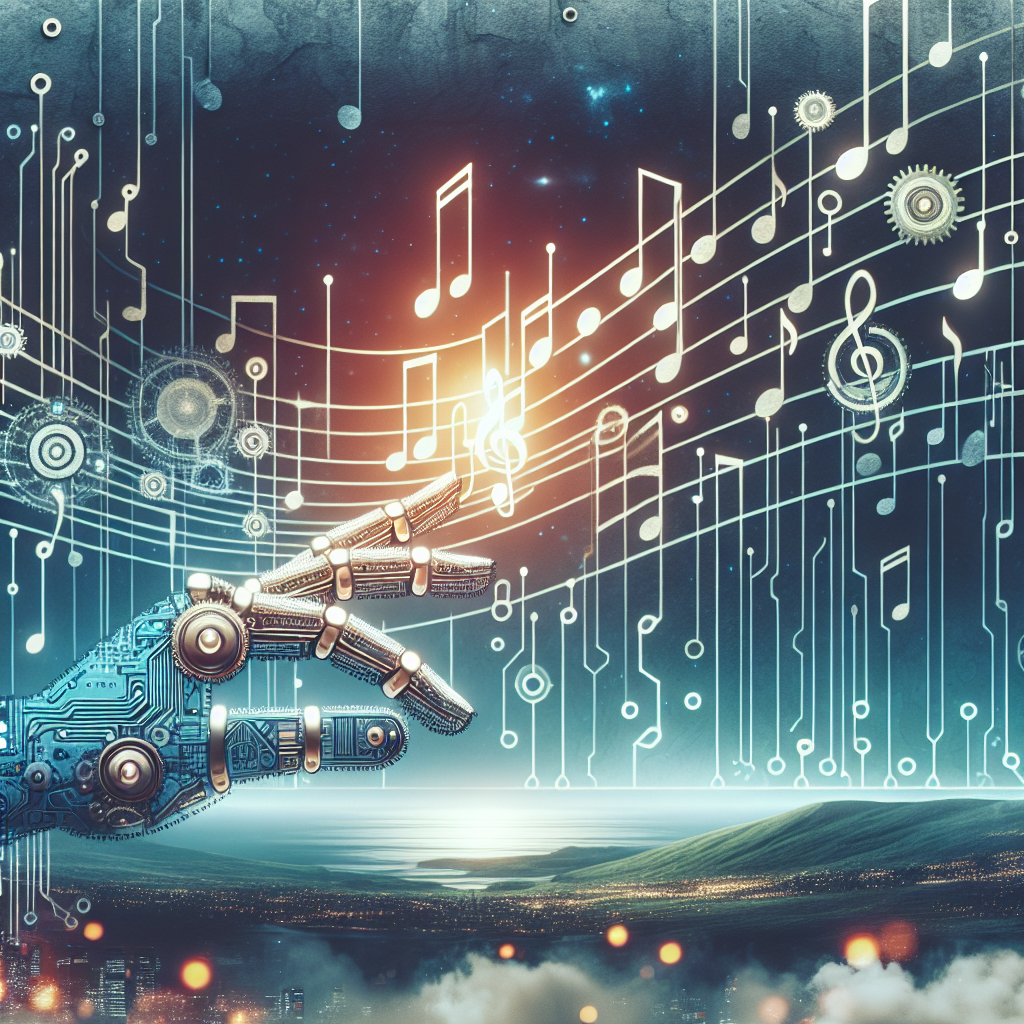Artificial Intelligence (AI) has been making waves in the music industry, revolutionizing the way songs are created and produced. With the help of AI technology, musicians and producers are able to generate hit songs with unprecedented speed and efficiency. From composing melodies to writing lyrics and even mastering tracks, AI is transforming the music-making process in ways that were previously unimaginable.
One of the most popular applications of AI in music is the creation of AI-generated songs. Companies like OpenAI and Amper Music have developed algorithms that can compose original music by analyzing patterns in existing songs and generating new melodies and harmonies. These AI-generated songs can be customized to fit specific genres or moods, making them a valuable tool for musicians looking to expand their repertoire.
AI is also being used to enhance the creative process for musicians and producers. Tools like Google’s Magenta and IBM’s Watson Beat can analyze audio files and generate musical ideas based on the input. These AI systems can help artists overcome creative blocks, experiment with new sounds, and discover unexpected musical combinations.
In addition to composing music, AI is also being used to improve the quality of recordings. Companies like Landr and AI Mastering have developed AI algorithms that can automatically master tracks, adjusting levels, EQ, and compression to create a polished final product. This can save musicians time and money by eliminating the need for expensive mastering engineers.
Furthermore, AI is being used in live performances to create immersive and interactive experiences for audiences. Companies like Jukedeck and AIVA have developed AI systems that can generate music in real-time, responding to the movements and emotions of the crowd. This technology can be used to create dynamic soundtracks for events like fashion shows, art installations, and video games.
Despite the many benefits of AI in music, there are also concerns about the impact it may have on the industry. Some critics worry that AI-generated music will lack the emotional depth and authenticity of music created by human artists. Others are concerned about the potential for AI to replace human musicians and producers, leading to job losses in the industry.
However, many musicians and producers see AI as a valuable tool that can enhance their creativity and productivity. By using AI to automate repetitive tasks and generate new musical ideas, artists can focus more on the aspects of music-making that require human creativity and emotion.
FAQs:
Q: Can AI really create hit songs?
A: Yes, AI has the potential to create hit songs by analyzing patterns in existing music and generating new melodies and harmonies. While AI-generated songs may lack the emotional depth of music created by human artists, they can still be successful in commercial markets.
Q: Will AI replace human musicians and producers?
A: While AI has the potential to automate certain tasks in music production, it is unlikely to replace human musicians and producers entirely. AI can enhance creativity and productivity, but human musicians will always play a vital role in creating music that resonates with audiences.
Q: How can musicians and producers benefit from using AI technology?
A: Musicians and producers can benefit from using AI technology by automating repetitive tasks, generating new musical ideas, and enhancing the quality of recordings. AI can help artists overcome creative blocks, experiment with new sounds, and create polished final products.
In conclusion, AI is transforming the music industry in exciting and innovative ways. From composing hit songs to enhancing live performances, AI technology is revolutionizing the way music is created and produced. While there are concerns about the impact of AI on the industry, many musicians and producers see it as a valuable tool that can enhance their creativity and productivity. As AI continues to evolve, it will be interesting to see how it shapes the future of music-making and the way we experience music as listeners.

